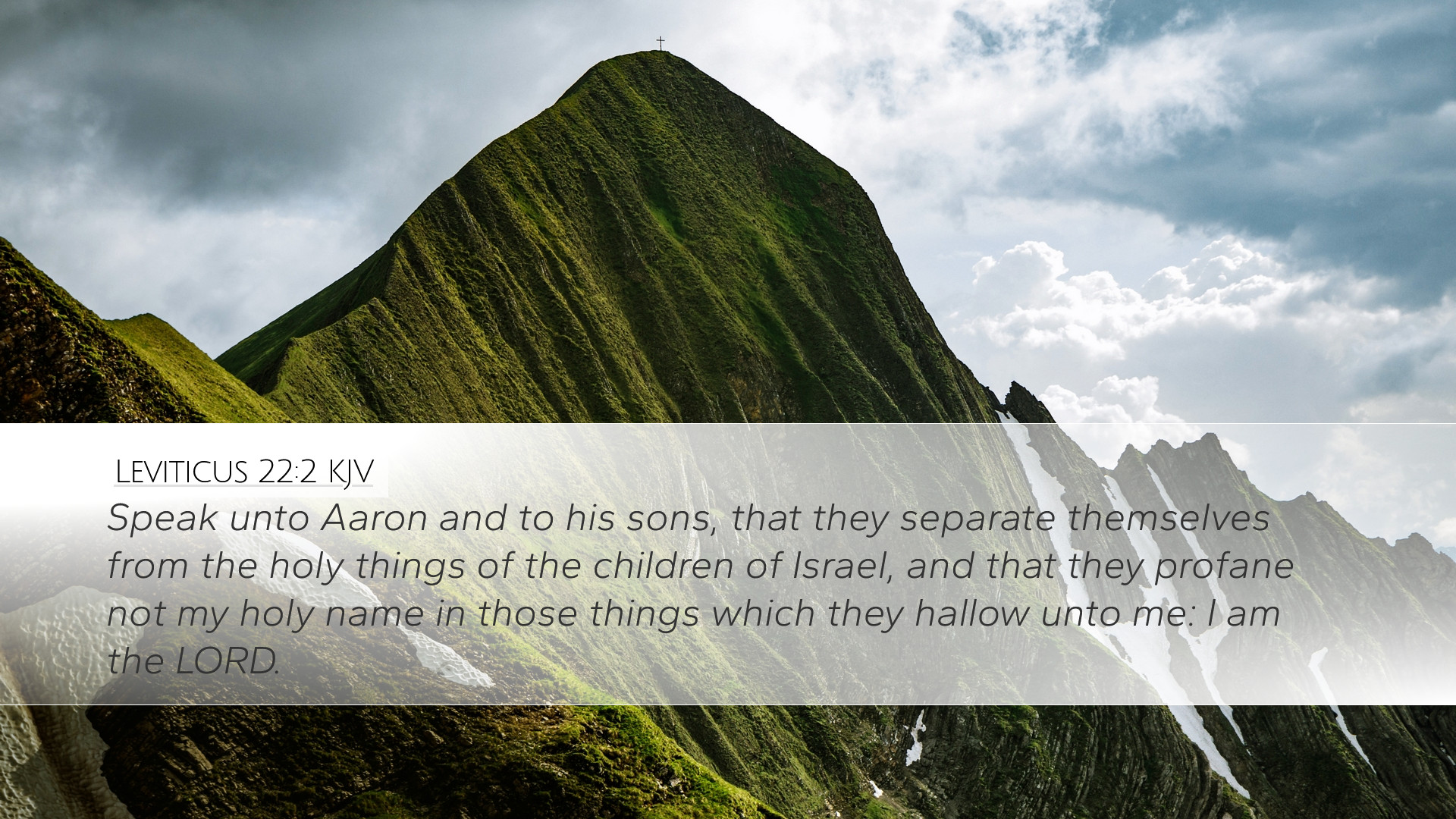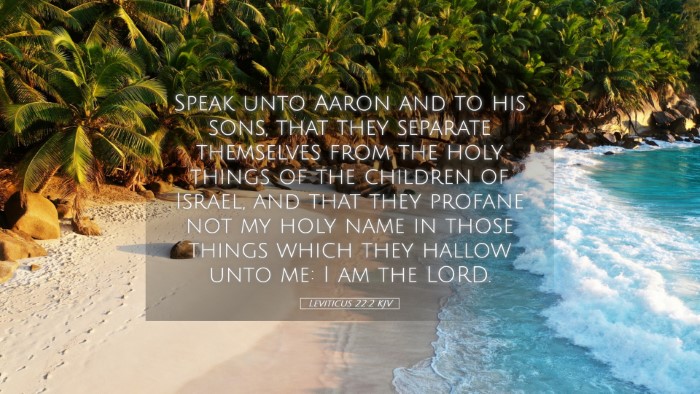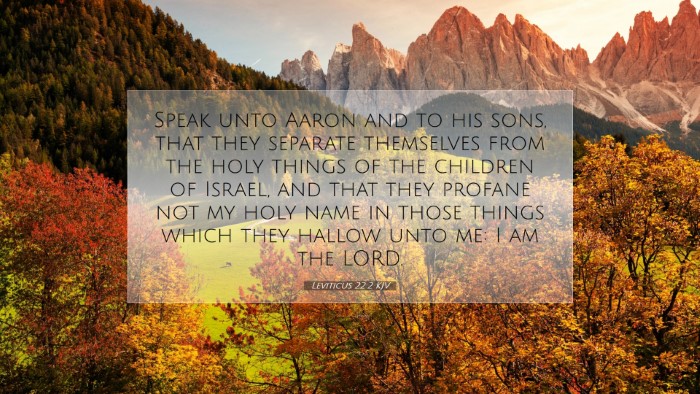Commentary on Leviticus 22:2
Verse: Leviticus 22:2 - "Speak unto Aaron and to his sons, that they separate themselves from the holy things of the children of Israel, and that they profane not my holy name in those things which they hallow unto me: I am the Lord."
Introduction
The book of Leviticus is a vital part of the Torah, focusing on the laws and rituals that govern the worship of the Israelites. In Leviticus 22, God provides specific regulations concerning the priests and their responsibilities regarding what is holy and sacred. Verse 2 distinctly illustrates these themes, emphasizing the separation required of the priests from the common practices of the people.
Contextual Analysis
This verse can be understood within the broader context of Levitical regulations. The priesthood is central to the religious life of Israel, tasked with mediating between God and the people. The holiness of the priests underscores the holiness of God and the seriousness of worship. Matthew Henry elucidates this by pointing out that “with great privileges and advantages comes great responsibility.”
Commentary Insights
Matthew Henry's Commentary
Matthew Henry notes that the priests must maintain a higher standard of holiness because of their unique role. They were set apart to serve God and lead the people in worship. Their failure to adhere to these regulations would not only endanger themselves but could also lead to the profanation of God's name among the Israelites. He asserts that “those who serve at God’s altar must be holy, not only in their actions but also in their thoughts and intentions.”
Albert Barnes' Notes
Albert Barnes highlights that “separation” in this verse carries profound implications. It signifies that the priests must not only be personally pious but also visibly distinct from the laity. By refraining from profaning the holy things, they embody the holiness of God and reflect His character. His commentary emphasizes that the sanctity of worship must be preserved through the actions of those who lead it.
Adam Clarke's Commentary
Adam Clarke elaborates on the term "profane," explaining that it involves treating something sacred as common or unworthy. Clarke points out the importance of the terms of cleanliness and integrity among the priests, stressing that “it is their duty to avoid every appearance of irreverence or disrespect towards the sacred.” This necessity underscores the seriousness of the worship environment and the behavior expected of its leaders.
Theological Implications
Leviticus 22:2 speaks not only to the rituals of ancient Israel but also offers profound theological insights relevant to contemporary faith practices.
- Holiness of God: The call to holiness is a central theme, affirming that God’s nature demands respect and reverence.
- Role of Leadership: The standards set for priests serve as a model for leadership in the Church today. Leaders are called to maintain a standard that reflects God's character.
- Public Worship: The communal aspect of worship necessitates a careful approach to how holiness is maintained in public settings, informing how churches conduct services and represent their faith.
Practical Applications
The conclusions drawn from Leviticus 22:2 can extend practically into various areas of ministry and personal spiritual life:
- Ministerial Accountability: Church leaders and ministers must uphold the highest ethical and moral standards, recognizing their influence on the faith community.
- Teaching Holiness: Congregations should be instructed on the importance of holiness in their own lives, promoting a lifestyle that reflects their faith commitments.
- Guarding Sacredness: Churches ought to cultivate an atmosphere that respects the sacredness of worship, avoiding casual treatment of holy things.
Conclusion
Leviticus 22:2 urges reflection on God's demand for holiness, particularly for those called to lead in spiritual matters. The insights from esteemed public domain commentators reaffirm the necessity of this call, enhancing our understanding of the importance of maintaining reverence in worship and leadership roles. As we strive to live out the principles encapsulated in this verse, may we respond as Aaron and his sons did—by recognizing the sacred nature of our calling and honoring the name of the Lord in all things.


